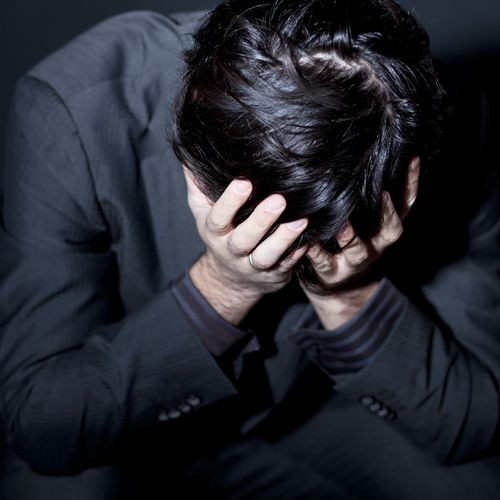Mild Depression Treatment Doesn't Always Mean Medication: 5 Ways To Stay Drug-Free

According to the Centers for Disease Control and Prevention, depression affects one in 10 American adults, and while there are a plethora of prescription medicines, some people believe that depression can be treated with alternatives to pills.
Dr. Mark Hyman believes that treating depression with antidepressants simply won’t work. He faults the Food and Drug Administration and medical journals, who he claims selectively publish studies that show the positive benefits to antidepressants. “This isn't just a problem with antidepressants,” he wrote in The Huffington Post. “It's a problem with scientific research. Some drug companies even pay or threaten scientists to not publish negative results on their drugs.”
Medicines like Prozac and Paxil are some of the big named brands that have annually sold billions of dollars, but how many people are actually benefitting from their treatment? In 2008, a study explained how Prozac 40m stopped working for people who were mildly depressed. Other research has shown the effectiveness of long-term use with these prescription medicines decreases over time.
While some patients have greatly benefitted from taking these anti-depressants, other homeopathic treatments for mild depression might be an alternative. It’s important to note that many of these treatments are anecdotal and further research is needed before physicians and mental health professionals can definitely recommend them. It’s also important to understand that depression, espeically in severe cases, is also a serious medical condition that should be viewed as such. Below are a few ways to naturally treat it:
1. Exercise
Sometimes whenever you’re feeling so low or depressed, it’s hard to think about exercising. However, wallowing or letting the stress or depression engulf you might exacerbate your depression. According to the Mayo Clinic, exercise helps depression because the body releases neurotransmitters and endorphins during a workout. It also reduces immune system chemicals that can worsen depression. Exercise increases your body temperature as well, which has calming effects.
2. Acupuncture
In 2013, researchers found that one in three patients were no longer depressed after acupuncture treatment. According to Reuters, "For people who have depression, who have tried various medical options, who are still not getting the benefit they want, they should try acupuncture or counseling as options that are now known to be clinically effective," said lead author of the study, Hugh MacPherson.
3. Light Therapy
In a three-week study, 43 percent of patients who received the bright light therapy relieved their depression as opposed to the 36 percent in the control group. Depression often pairs with poor sleep. The theory is that the bright light might help to decrease stress levels. “Light therapy is now evolving as an effective depression treatment not only to be used in seasonal affective disorder,” said Dr. Ritsaert Lieverse, lead author of the study, The New York Times reported.
4. Yoga
Stress can be a big factor when managing depression, and according to Harvard University, yoga helps to reduce perceived stress and anxiety, which helps to improve the stress response system. “There is also evidence that yoga practices help increase heart rate variability, an indicator of the body's ability to respond to stress more flexibly,” the newsletter stated.
5. Changing Your Diet
Sometimes when people are in a slump, they tend to change their eating habits, whether it’s overeating or not eating enough. None of this evidence is 100 percent concrete, but foods that are high in omega-3 fatty acids may help to combat depression symptoms, according to a 2010 study. The researchers found that a certain lack of foods might exacerbate the symptoms. “Epidemiological and neurobiological studies have suggested that a relative deficit in polyunsaturated fatty acids of the Omega-3 group may predispose individuals to psychological disorders such as depression,” the study authors said.
Published by Medicaldaily.com



























